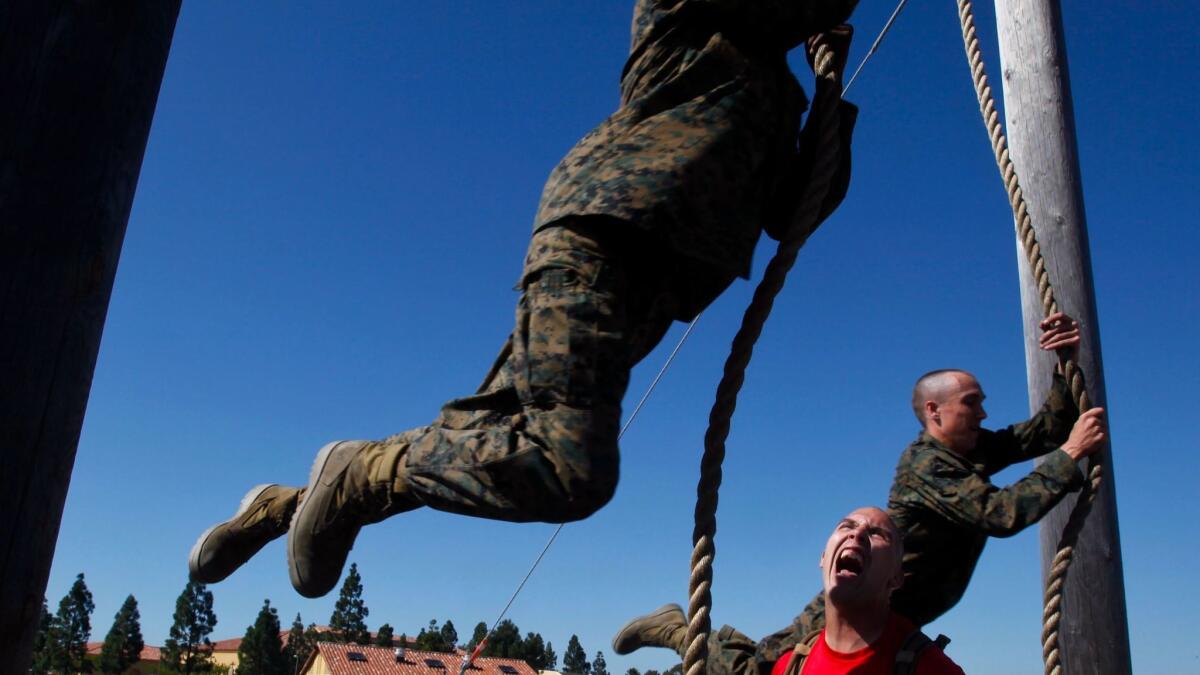Bacterial outbreak sickens hundreds of Marine recruits in San Diego

- Share via
More than 300 recruits at the Marines’ boot camp in San Diego are suffering from diarrheal symptoms from an bacterial outbreak, officials disclosed this week.
With most of the cases linked to Shiga toxin-producing E.coli bacteria, physicians are treating 302 patients out of the more than 5,500 candidates undergoing training at Marine Corps Recruit Depot.
“Our immediate focus is identifying, isolating and treating recruits who present symptoms,” said Brig. Gen. William Jurney, the commander of both the depot and the Corps’ Western Recruiting Region, in a written statement Tuesday. “We are working to identify the cause of the sickness, making sure our affected recruits can return to training as soon as possible and continuing training for recruits not influenced.”
The Centers for Disease Control and Prevention estimates that the bacteria sickens 265,000 Americans annually, triggering 3,600 hospitalizations and 30 deaths.
Symptoms typically include painful stomach cramps, diarrhea that can become bloody, a mild fever and vomiting.While most victims recover within a week, some infections can threaten lives. Between 5% and 7% of patients develop hemolytic uremic syndrome, a form of kidney failure, according to the CDC.
The bacteria was identified in recruits at both the depot and at Edson Range at Camp Pendleton beginning on Wednesday, but the number of cases spiked on Monday, officials said.
Ten recruits were transported to an undisclosed hospital off the base for additional care.
“It’s anticipated that they’ll get to training but we’re not sure when that will happen,” said depot spokesman Steven H. Posy.
Family members will be notified if the illness delays a recruit’s graduation date and no drill instructors or other base staffers appear to have contracted the malady, he added.
While investigators continue searching for the source of the contagion, commanders have quarantined sick recruits from those who have yet to display symptoms, mandated increased hand washing and ensured proper sanitation in all training areas, officials said.
Naval Medical Center San Diego’s Preventative Medicine Unit also hiked inspections of barracks, dining facilities and common areas across the depot.
Prine writes for the San Diego Union-Tribune.
More to Read
Sign up for Essential California
The most important California stories and recommendations in your inbox every morning.
You may occasionally receive promotional content from the Los Angeles Times.









